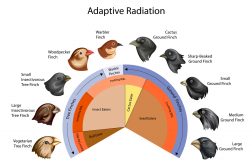Definition
noun
The branch of biology that deals with the (study of) classification systems and nomenclature of organisms
Supplement
Systematics in biology is concerned with the classification systems and nomenclature of organisms. It is a branch of biological science that studies the distinctive characteristics of species and how they are related to other species through time. Thus, it is the basis used to understand the evolution of life. Its main objectives are to provide scientific names for organisms, to describe organisms, to preserve collections of organisms, to provide and apply classification systems, to help identify organisms, to determine the distributions of organisms, to investigate the evolutionary histories of organisms, and to study the environmental adaptations of organisms.1
Systematics is sometimes used interchangeably with taxonomy. This is because, taxonomy is a branch of science concerned also in finding, describing, classifying, and naming organisms, including the studying of the relationships between taxa and the principles underlying such a classification. However, systematics is more encompassing than taxonomy. The latter does not include the study of evolutionary histories and the environmental adaptations of organisms.
Also called:
- systematic biology
- biosystematics
See also:
Reference(s):
1Systematics. Retrieved from ://en.wikipedia.org/wiki/Systematics.







